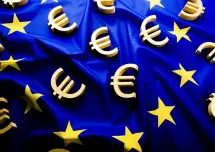Eurozone deflation fears fuelled by inflation decrease
Eurozone inflation fell to 0.7% in January, a 0.1% decrease from December and even further below the 2% target set by the European Central Bank. The rate was forecast to increase slightly in early 2014 but it seems have regressed. It last reached 0.7% in October which was a 4 year low for the Eurozone.
Deflation affects wage growth, consumer spending, and corporate profits. With the economic stability of the EU still vulnerable
there are serious concerns that this could undo the positive recovery and economic growth achieved by many EU countries in recent months.
Eurostat, the European Union’s statistics agency, reported that the cost of food, alcohol and tobacco rose by 1.7%, but energy costs suffered a 1.2% dip. Head of the International Monetary Fund, Christine Lagarde said at the World Economic Forum in Davos that Eurozone inflation was “way below” target. Mario Draghi, President of the European Central Bank, said that the ECB was prepared to take action if required.
One of the major issues why deflation could be so detrimental to the EU is because of the way it exacerbates debt problems. Many EU countries are struggling under the weight of huge amounts of debt, both in the public and private sectors. Governments in particular will be impeded by falling income from tax revenues if deflation causes company profits and personal incomes to fall.
The ECB is under pressure to take action. It is thought that another interest rate cut like the one in November, which took the rate down to a record low of 0.25%, is the most likely policy although is not expected until March.


